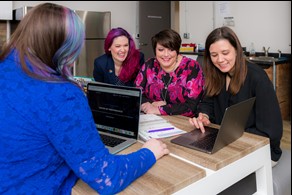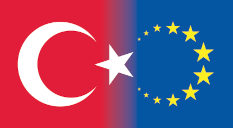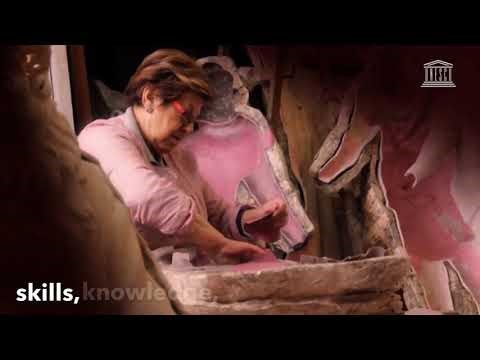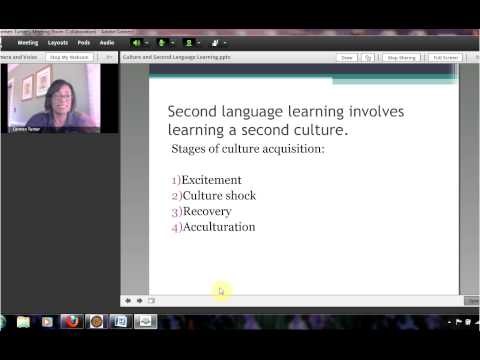Why studying at an older age, Language learning and cultural heritage…
1. Learning foreign languages in culturally-inclusive environments
INTRODUCTION
Educational and training are considered crucial for older learners to develop their basic skills and knowledge to actively participate in social and civic processes. However, it is still very challenging for many adults to combine learning with their daily duties and activities; since many learning opportunities targeted this sector are still based on traditional faceto-face teaching methods, not everybody has the same opportunities to access learning offers. When it comes to language learning, they also encounter the barrier of the lack of a context and learning environment that accompanies their learning process and favours an immersion into the language and its culture –in its wider sense.
Over the last years, many initiatives are being carried out in this field through the “prism” of adult education as it “contributes to the conservation and preservation of heritage and scientific resources, creates new educational opportunities…and provides ways of improving access by the citizen to their patrimony” (Digicult, 2003). Considering the value of European cultural and heritage and its capacity to work as a social inclusion motor, this blended course will continue to encourage EU citizens to find out more about Europe’s cultural heritage, engage to it and make the legacy of the European Year a priority.
Course approach
With this course, you will be able to develop more personalized learning offers - tailored to the needs of adult learners. You will be able to learn how to use and integrate cultural and intercultural materials teaching foreign languages and ICT to adult learners and have recommendations on how to create an inclusive learning environment.
As an educator, this course will help you develop your professional competences to foster your learners’ linguistic and digital competences, as well as their participation in civic and social life, through the integration of cultural heritage values in the learning process. You will get acquainted with the methodology of cultural interpretation as a non-formal and informal learning method and help them to become more competent in development of teaching materials for foreign language classes using cultural and intercultural materials. Throughout this course, you will learn the basics about tangible and intangible cultural heritage, about using it as a motivational trigger for EFL learning with your adult learners and about new and innovative digital tools and apps that you can introduce in your educational programmes not only to improve your learners’ digital skills but also their whole learning experience.
2. Tangible vs Intangible cultural Heritage
Cultural Heritage is an expression of the ways of living developed by a community and passed on from generation to generation, including customs, practices, places, objects, artistic expressions and values. Cultural Heritage is often expressed as either Intangible or Tangible Cultural Heritage (ICOMOS, 2002). This legacy does not consist only of physical artefacts as it is too often thought, but also of intangible characteristics of specific communities or societies which have been transmitted over generation for years. It also includes natural heritage elements, such as relevant landscapes or biodiversity.

When we talk about TANGIBLE HERITAGE we refer to, among many other, material things such as monuments and buildings or objects and artefacts that have a certain value and are worth to be preserved in the future. Tangible culture is also understood, as all those cultural manifestations that have a material and physical status. These include objects significant to the archaeology, architecture, science or technology of a specific culture. Objects are important to the study of human history because they provide a concrete basis for ideas, and can validate them. Their preservation demonstrates recognition of the necessity of the past and of the things that tell its story.

On the contrary, all those cultural manifestations and expressions that are not material, including traditions, arts, performances, festivities and rituals… and knowledge among many other are considered INTANGIBLE HERITAGE. In general, we refer to them as culture inherited from the past, from the cultural baggage of our societies, transferred from generation to generation. Intangible heritage embraces a wide range of fields, such as food, music, crafts, medicine…) and concerns knowledge, practices and skills.
Sources:
- Fiona Hamilton - Trawlwulwuy Heritage Officer, Writer, Artist, Cultural Producer, Violence Educator, Ethicist and Activist. Fiona lives on Country in Tasmania.
- Ann Marie Sullivan, Cultural Heritage & New Media: A Future for the Past, 15 J. MARSHALL REV.
https://repository.jmls.edu/cgi/viewcontent.cgi?article=1392&context=rip
What does intangible cultural heritage mean to you?
Source: https://www.youtube.com/watch?v=2phs0pQIgWU
3. Why studying at an adult age?
There is no unique answer to this question, but looking at both individual and social levels, but also at the economy, it brings benefits to them in terms of:
- Personal development
- Health
- Increased knowledge, skills and competencies
- Increased self-confidence
- Productivity
- Feelings of social cohesion
Adult education is an important contribution to society and the economy, but beyond that, universal education, as a human right, provides individuals with a number of benefits in their lives, such as being able to remain active, to continue projecting new challenges and goals while developing new activities at this stage of life.
To quote the OECD on lifelong learning: "this understanding of learning encompasses personal and social development in all its forms and in all contexts whether formal - school, vocational, higher and adult learning institutions - or informal - at home, at work or in the community. It is a systemic approach that accompanies the levels of knowledge and skills to be acquired by all, whatever their age. It emphasises the need to motivate children, from their earliest years, to learn throughout their lives and to direct efforts so that all adults, whether employed or seeking employment, who need to upgrade their skills or retrain, have the opportunity to do so" (OECD, 1996).
At this point, it is very important to understand that the role of educators in adult learning is crucial. There are many different ways educators approach their relation with learners and with their learning process…

Watch this interactive presentation about types of educators
Why Blended Learning?

Blended learning ''represents the transformation of how we approach teaching and learning. It is a complete rethinking and redesign of educational environment and learning experience.'' (Blended Learning in Higher Education: Framework, Principles, and Guidelines, D. Randy Garrison, Norman D. Vaughan: 2008). This course’s blended learning approach will guarantee that educators are equipped with innovative educational, teaching and training strategies, methodologies and materials to use when working with older adults. Through an active learning approach, educators will also learn how to develop teaching materials related to culture and heritage and adapt them to the needs of older learners.
The course focuses on supporting educators in using digital tools in their courses to ensure adult learners “learn by doing” processing the information about tangible and intangible culture elements and collecting information about hidden cultural items in their communities.
You will see your professional competences and digital skills improved and feel more confident when working with adult learners. You will be able to create more inclusive learning environments by taking advantage of cultural materials/community resources to teach foreign languages.
The role of Culture in Language Learning
How is a Language related to the cultures where this Language is spoken? Do we need to learn cultural aspects of a Language to effectively learn it? Some claim it is important to acquire and adopt some aspects of the cultural behaviour attached to a Language if we want to get involved in the world where it is spoken and, thus, learn it more naturally.
Watch this interesting presentation by Dr. Turner about it, and read the article by Dr. Nguyen.
Sources:
4. Key factors for high-quality education
Aspects that need attention in order to ensure the quality of adult education:
- the quality of the learning environment
- the coincidence between the student and the learning that is taking place
- the quality of the learning facilitator
- the quality of the institutional arrangements and policies, which enable it, etc.
Within the different disciplines of older student training, many people study second languages, either as part of older adult education programmes, or in language courses themselves, immersion or otherwise. The study of languages is particularly popular because of the multilingualism and multiculturalism characteristic of today's societies.

"Participation of adults in education and training remains limited" (European Commission, 2006). According to their reports, barriers to people's participation may be related, on the one hand, to access some of the requirements, the expenditures and fees, to the learning approaches used, to the support and monitoring they receive, etc., and, on the other hand, to the life situation, the extent to which the adult's family and social environment support participation, their self-confidence in learning, and their motivation, which are often linked to failure in previous educational experiences. Often, the most important obstacles come from the demand side: lack of time due to work or family reasons, lack of awareness and motivation because learning is not considered to be sufficiently valued or rewarded and therefore its benefits are not seen, lack of information about supply and lack of funding. Among many approaches that can be taken to remove said barriers to their participation in education and training paths is to make them match with their needs. Some strategies that can be followed to achieve so are making learning programmes more flexible (breaking them down in smaller modules and units), offering different learning models, such as e-learning, etc. Adult learners can also benefit from various services adapted to their needs, such as guidance services or accreditation of learning acquired in non-formal and informal contexts (Eurydice, 2011).
ICT is very important for seniors
ICT offers great opportunities and benefits, but to put it into value it is necessary to know the relationship between adult learners and the use and knowledge of ICT, to see if these are adapted to their characteristics and needs.

5. References
http://www.readingmatrix.com/files/16-lm7civ98.pdf
https://www.youtube.com/watch?v=lRpHXFKZKac
Ana Tuşa, Claudiu Sorin Voinia, Dănuţ Dumitru Dumitraşcu. "Comparative Analysis For The Implementation Of The Concept: Lifelong Learning In Places Like
France, Germany, Finland, Romania", Balkan Region Conference on Engineering and Business Education, 2014
Fiona Hamilton - Trawlwulwuy Heritage Officer, Writer, Artist, Cultural Producer, Violence Educator, Ethicist and Activist. Fiona lives on Country in Tasmania.
https://repository.jmls.edu/cgi/viewcontent.cgi?article=1392&context=ripl
"The European Commission support for the production of this publication does not constitute an endorsement of the contents which reflects the views only of the authors, and the Commission cannot be held responsible for any use which may be made of the information contained therein."




